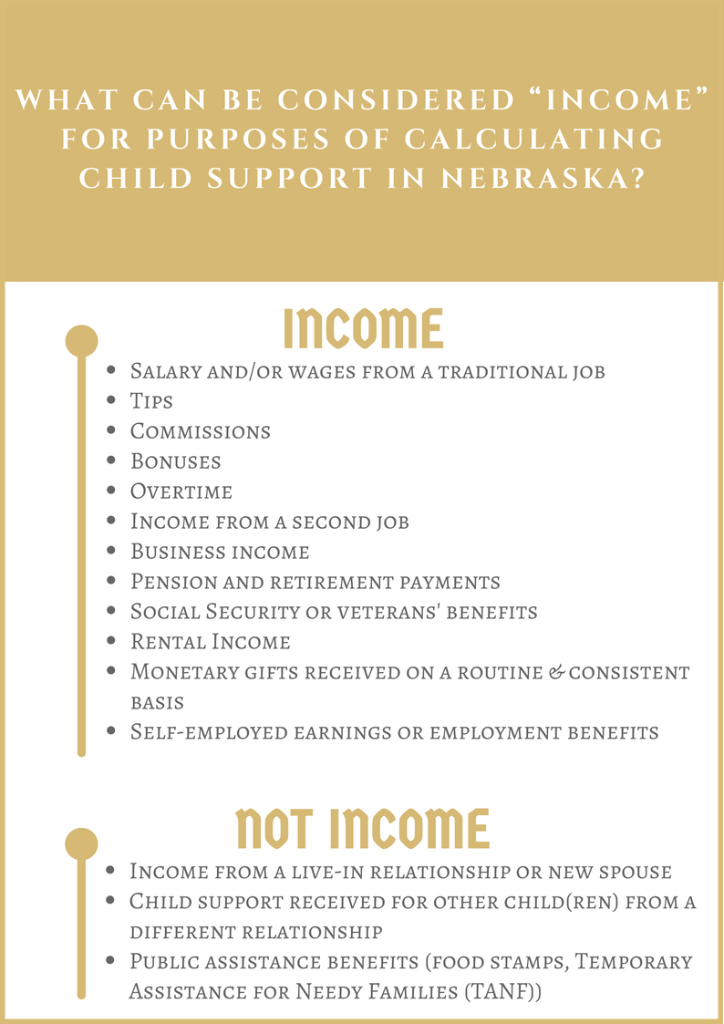In Nebraska, child support is determined by the Nebraska Child Support Guidelines. The Guidelines are rules that the Nebraska courts use to determine which parent will pay child support and how much child support will be paid each month.
The amount of child support ordered depends heavily on each parent’s gross income. While determining a parent’s gross income might seem relatively straightforward, there can be many complexities and unique factors to consider depending on the facts of each case.
If both parents work traditional 40 hour per week jobs with consistent salaries, calculating child support can be a matter of plugging in the correct numbers into the calculation.
But what if a parent is self-employed and doesn’t receive a paycheck? What if a parent is not employed at all? What if a parent receives child support for a child from a different relationship?
Nebraska courts define “income” as money received from all sources (with a few exceptions). This includes income that could be earned by each of the parties through reasonable effort.
What CAN BE considered as income for determining child support?
- Salary and/or wages from a traditional job
- Tips
- Commissions
- Bonuses
- Overtime
- Income from a second job
- Business income
- Pension and retirement payments
- Social Security or veterans’ benefits
- Rental income
- Monetary gifts received on a routine and consistent basis
- Self-employed earnings or employment benefits (use of a company car, cell phone, etc.)
What IS NOT included as income for determining child support?
- Income from a live-in relationship or new spouse
- Child support received for other child(ren) from a different relationship
- Public assistance benefits (food stamps, Temporary Assistance for Needy Families (TANF)).
What happens if the other parent does not have a job?
In Nebraska, if a parent is not employed, it does not mean that he or she will not pay child support. Instead, the court will determine that parent’s “earning capacity” to determine how much child support he or she will pay. For example, if a parent previously held a job that paid $16.00 per hour, the court can use that figure to determine the future child support obligation.
For unemployed parents, the court will look at that parent’s previous work history, education, occupational skills, and job opportunities to determine a fair amount of monthly gross income to use for the child support calculation.
The guiding principal of the Nebraska Child Support Guidelines provides that each parent has an equal duty to support their children in proportion to their incomes. To ensure that child support is accurately calculated and Nebraska children are financially provided for, both parents’ incomes from all sources and through reasonable efforts are to be taken into consideration.
Angela Lennon

